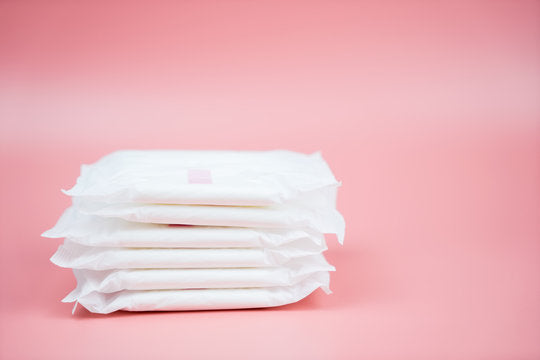
Sustainable Manufacturing Practices for Ultra Thin Pads
Ultra Thin Pads have become popular choices for women seeking comfortable and discreet menstrual protection. However, it is crucial to consider the environmental impact of these products and the sustainable manufacturing practices employed by ethical brands. In this article, we will explore the importance of sustainability in the production of thin pads, highlighting key practices that prioritize eco-friendliness without compromising on quality and comfort.
Understanding Sustainable Manufacturing for Ultra Thin Pads:
Sustainable manufacturing is a holistic approach that focuses on minimizing environmental impact throughout the production process. Ethical brands that specialize in Ultra Thin Pads prioritize sustainability, incorporating eco-friendly practices to ensure a positive contribution to the environment.
1. Sourcing 100% Pure Cotton:
Ethical brands prioritize the use of 100% pure cotton for their Ultra Thin Pads. Pure cotton is a natural and renewable material that is free from harmful chemicals and pesticides. By using pure cotton, these brands promote sustainability by reducing the environmental impact associated with synthetic materials and promoting healthier ecosystems.
2. Ultra Thin Design with Optimal Absorbency:
Ultra Thin Pads are designed to be discreet and comfortable, providing reliable protection without sacrificing functionality. Ethical brands focus on optimizing absorbency while maintaining a thin profile. This ensures that users can confidently go about their day without compromising on comfort or environmental impact.
3. Biodegradable and Compostable Materials:
To minimize waste and environmental impact, ethical brands offer Ultra Thin Pads made from biodegradable and compostable materials. These pads break down naturally over time, reducing the burden on landfills and promoting a circular economy. By choosing biodegradable options, users can make a positive impact on the environment.
4. Reduction of Packaging Waste:
Ethical brands are mindful of packaging waste and strive to minimize it. They explore innovative packaging solutions that use less plastic or opt for eco-friendly materials. By reducing packaging waste, these brands contribute to waste reduction and promote sustainable consumption practices.
5. Commitment to Social and Environmental Responsibility:
Ethical brands demonstrate a commitment to social and environmental responsibility throughout their manufacturing processes. They prioritize fair labor practices, ensuring safe and fair working conditions for employees involved in production. Additionally, they actively engage in community initiatives and support environmental causes, aligning their values with those of their environmentally conscious consumers.
Exploring Organic and Natural Sanitary Pad Options for a Chemical-Free Experience.
When it comes to feminine hygiene, many women are increasingly drawn to organic and natural sanitary pad options. These pads provide a chemical-free and environmentally friendly experience during the menstrual cycle. Made from organic cotton and other natural materials, they offer a safe and gentle alternative that prioritizes both health and sustainability. By exploring the range of organic and natural sanitary pads available, women can make informed choices that align with their values and promote a healthier lifestyle. With these pads, women can have peace of mind knowing that only pure and natural materials come into contact with their bodies, reducing the risk of skin irritation and allergic reactions. Furthermore, by choosing organic and natural pads, women actively contribute to sustainable practices by supporting brands that prioritize renewable resources and minimize environmental impact. In essence, the exploration of organic and natural sanitary pad options empowers women to prioritize their well-being, comfort, and the well-being of the planet, all while enjoying a chemical-free and eco-conscious solution for their menstrual needs.
Benefits of Ultra Thin Pads:
Choosing Ultra Thin Pads that adhere to sustainable manufacturing practices offers several benefits. Users can enjoy the comfort and discretion provided by these products while also minimizing their environmental footprint. By opting for 100% pure cotton, biodegradable materials, and supporting ethical brands, individuals can make a positive impact on both their well-being and the environment.
In the end
Sustainable manufacturing practices play a crucial role in the production of Ultra Thin Pads. Ethical brands that prioritize eco-friendly materials, reduction of packaging waste, and social and environmental responsibility contribute to a more sustainable menstrual product market. By choosing Ultra Thin Pads made with 100% pure cotton and other sustainable materials, individuals can embrace a more eco-conscious approach to menstruation. Together, we can support brands that prioritize sustainability and make a positive impact on our planet, without compromising on comfort and performance.